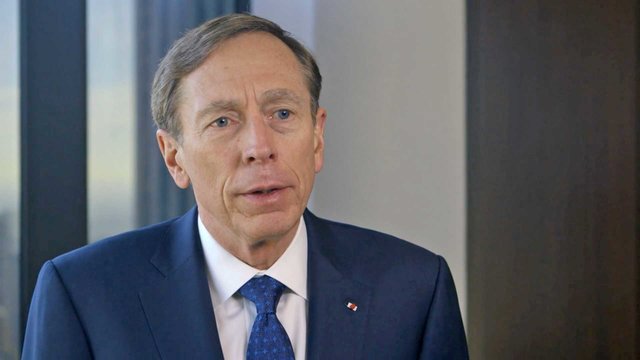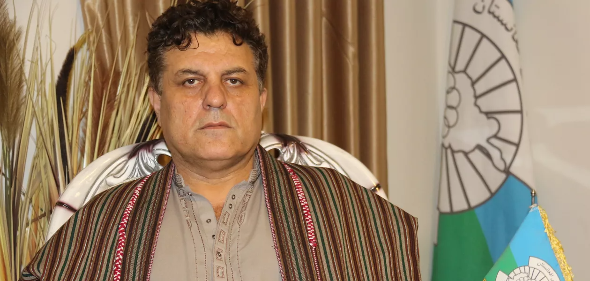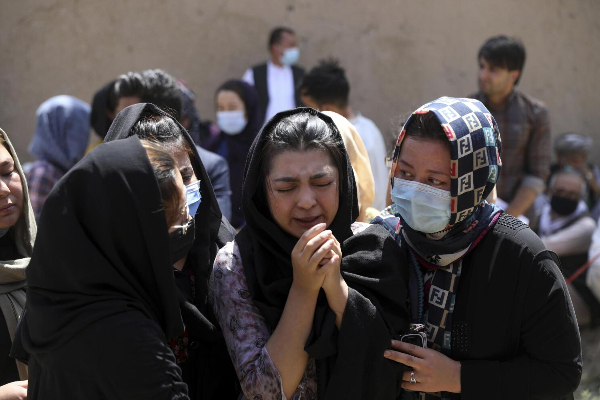Retired U.S general David Petraeus said recently that the U.S needs to stay in Afghanistan and that in being in the country the U.S has a "useful platform there for the regional counterterrorist effort."
Speaking to PBS NEWSHOUR, Petraeus, who commanded American and coalition forces in the wars in Iraq and Afghanistan, said: "I think what we need to get to in Afghanistan is a sustainable, measuring the expenditure of blood and treasure, a sustainable, sustained commitment. We need to recognize that we went there for a reason and we stayed for a reason, to ensure that Afghanistan is not once again a sanctuary for al-Qaeda or other transnational extremists, the way it was when the 9/11 attacks were planned there.
"That's why we need to stay. We also have a very useful platform there for the regional counterterrorist effort. And, of course, we have greatly reduced the capabilities of al-Qaeda's senior leaders in that region, including, of course, taking out Osama bin Laden.
"But this is a generational struggle. This is not something that is going to be won in a few years. We're not going to take a hill, plant a flag, go home to a victory parade. And we need to be there for the long haul, but in a way that is, again, sustainable."
He said the U.S has been in "Korea for 65-plus years because there is an important national interest for that."
On the back of this, when asked by the PBS NEWSHOUR journalist whether he meant the U.S needed to stay in "Afghanistan 60,70,80 years?" Petraeus said: "I wouldn't say 60, but I think we shouldn't approach this as a year-on-year mission."
On the issue of increasing U.S troop levels in the country, Petraeus said he felt the U.S needed to have a sustained commitment and that 3,000 to 5,000 more troops was sustainable.
"But also we should relax the remaining restrictions on the use of our airpower to support our Afghan partners who have shown that they are willing to fight and die for their country against al-Qaeda, the insurgents of various types and so forth," he said.
Petraeus also said the U.S's presence "did actually turn back the Taliban."
"We are not going to permanently win this. Keep in mind, there's a huge difference between Afghanistan and even Iraq when we did the surge there. You can't pressure the leaders of the Afghan Taliban, the Haqqani Network, and even some of the other insurgent groups, because they're out of our reach. They're in sanctuaries inside Pakistan.
"And, indeed, there should be a regional effort there to try to get our Pakistani partners to do more to deny this sanctuary to those elements that are making life so difficult for Afghans and the Afghan government," he said.
He also stated that the U.S's national security team is currently working on its strategy for Afghanistan and said "I do think you can anticipate an integrated strategy".
"Again, the troops are just a part of this. They're an important part, because, without them, without halting the erosion of security that has characterized Afghanistan over the last year or more, then you're going to have a serious problem on your hands," he said.
This comes after reports emerged Friday that the Pentagon plans to send almost 4,000 additional U.S troops to Afghanistan.
A U.S official said on Thursday that more troops would be sent and the decision could be announced as soon as next week.
Last week, the U.S Defense Secretary James Mattis said in a statement that the United States "will not repeat the mistakes of the past" and in setting new troop levels, its military will have greater agility in conducting operations in Afghanistan.
"This administration will not repeat the mistakes of the past. We cannot allow Afghanistan to once again become a launching point for attacks on our homeland or on our allies," he said.
LINK: https://www.ansarpress.com/english/7156
TAGS:































 Ghani Removed From UN Heads of State List
Ghani Removed From UN Heads of State List 




